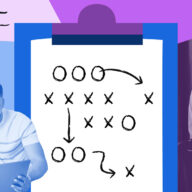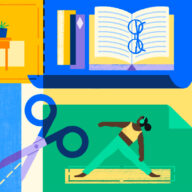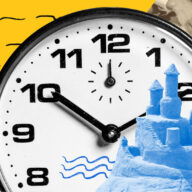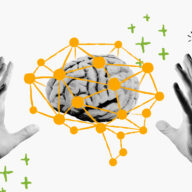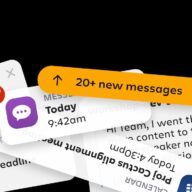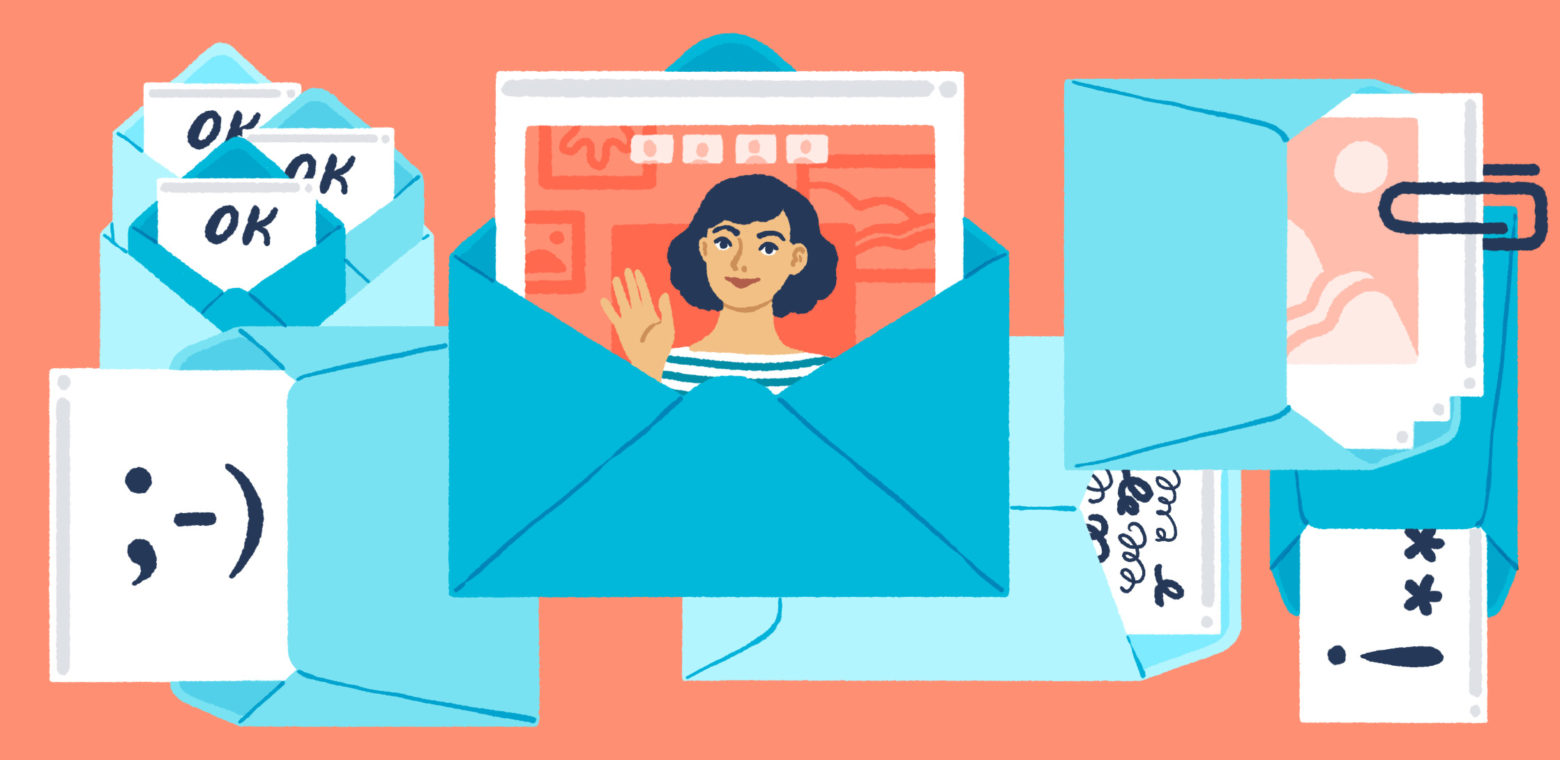5-second summary
- If you’re among the millions of professionals who’ve transitioned to distributed or hybrid work, you’re probably using email more than ever.
- Common breaches of professional email etiquette include excessive familiarity, excessive formality, and accidentally leading people to believe you’re ghosting them.
- The key to a good email game is empathizing with your audience.
Mastering the nuances of email in a professional context is a high-stakes game. When you get it right, email is a convenient, effective tool for expressing yourself and exchanging information. But one misstep can damage your relationship with colleagues or clients.
To help us all avoid the embarrassment of erroneous email usage, we turned to Ellen Jovin. She’s an executive communications consultant, creator of the Grammar Table (a Q&A pop-up, sure to make any high school English teacher smile), and author of “Rebel with a Clause: Tales and Tips from a Roving Grammarian.”
Here’s how Ellen answered our most burning email-related questions.
1. As chat and video calls become ever-more prevalent, what role does email play in today’s workplace?
Although my clients communicate via chat apps and video calls far more than they did previously, they still have a massive amount of email. Email is used internally, it’s used for client and vendor communications, it’s used for discussions that require written records (i.e., a nonpaper paper trail!), and it’s central in many other functions.
Email is certainly the dominant communication method in my own working life, although you could say I live a double life. When I am not at work, I sometimes message friends and family without any capitalization or punctuation! But in my workplace role, I’m scrupulously careful about what I send out from my computer. Good email skills can transform people’s professional lives.
2. How do you think email etiquette in a professional context differs from personal use?
Well, you don’t typically share cookie recipes or tell Grandma you love her in a work email, but I think many people imagine that the difference between personal and professional email is greater than it is.
If you write naturally and comfortably in personal email but then sound like a jargon robot in your work email, you might want to rethink your professional email voice. People often try to sound sophisticated at work, but in trying, they may adopt a false or unnatural way of communicating. For example:
Hi Jackie,
As per your request, please find attached the illustration.
compared to…
Hi Jackie,
I’ve attached the illustration you asked for.
Your work email should have a style that matches the person you are. Work email can sound like you and still be utterly professional.
3. What are some of the worst (and/or most common) breaches of email etiquette?
- Writing too much. You really, truly don’t get paid by the word. People say they understand this point but then write as though they don’t. No one will ever love your details as much as you do, so be discriminating about what you include.
- Burying your purpose. Remember when you had to have a clear thesis in the introduction of your school essays? Make sure there is a clear point early in your email as well.
- Failure to answer the questions asked. If someone asks you two questions and you answer one, that’s annoying. Good email writers are also good email readers. You can’t skim and expect to get everything. You have to listen to the other person. If you went out on a date and your date said “I love fiction and read at least two novels a week” and you absentmindedly replied “Oh, I hate novels too,” that wouldn’t go over well either.
- Excessive familiarity. If you don’t know someone, beginning “Hey Ryan” and getting chatty out of the gate is presumptuous. It’s even worse if you’re writing because you want something from that person and that person is under no obligation to do it.
- Failure to respond. In non-urgent situations, I’m not a fan of the whole instant-response email culture. Constantly interrupting brain-intensive tasks to jump on incoming emails does not support thoughtful analysis at work. But if you don’t respond in a timely way to customers and clients and bosses to tell them you’re at least working on their request or inquiry, they won’t know you are out there tackling what they have sent you.
- Errors. Don’t listen to people who tell you errors don’t matter as long as people know what you mean. We all make mistakes, but it’s important to minimize them in email. Errors – whether in numbers, words, punctuation, or anything else – dent perceptions of the writer’s professionalism. In addition, errors regularly prevent people from knowing what the writer means. A missing “not” might be a big deal!
- Escalating unpleasantness in writing. If things are getting heated, it’s usually better to drop the email and call or arrange a meeting instead. Language began as oral communication, after all – not as email.
We all make mistakes, but it’s important to minimize them in email. Errors – whether in numbers, words, punctuation, or anything else – dent perceptions of the writer’s professionalism.
4. Ok, so what’s your advice for using email to maximum effect?
Audience awareness is everything. At work, I’m trying to make other people’s lives easier. That means brevity and simplicity. It also means not causing unnecessary labor for others. Forwarding a long email dialogue with “What do you think?” at the top is an example of creating unnecessary labor.
Be vigilant about bad habits, because they can creep up on you over the years. Can you think of someone whose email you dread receiving? What do you dislike about it? Endless paragraphs, rude tone, tangled sentences, piles of jargon, confusing errors? Whatever it is, make sure you are doing the opposite in the communication you send out.
5. How have the rules or norms for email shifted over the past decade, and how do you think they might continue to evolve over time?
Emails used to look more like letters. Many excellent ones still do, even though “Dear So-and-so” as an opener continues to decline. (In my own working life, that letterlike greeting is now rare, though I see it in academia, at museums, in fundraising, and in other professional and international contexts.)
I find that people are also more likely to skip openings and closings entirely, especially in ongoing email dialogues, so back-and-forth exchanges can often end up resembling chat. I tend to mirror what my clients do, so I wait for them to initiate no-greeting, no-closing messages rather than initiating those myself.
I can’t imagine how much more email could actually change, because we still have to put words into sentences. I try not to predict the future, though, as whatever I picture will surely be wrong!












